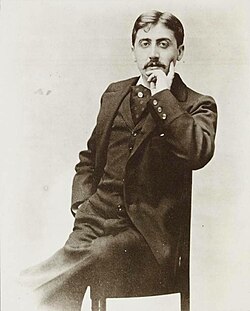Marcel Proust Quote
And it is because they contain thus within themselves the hours of the past that human bodies have the power to hurt so terribly those who love them, because they contain the memories of so many joys and desires already effaced for them, but still cruel for the lover who contemplates and prolongs in the dimension of Time the beloved body of which he is jealous, so jealous that he may even wish for its destruction. For after death Time withdraws from the body, and the memories, so indifferent, grown so pale, are effaced in her who no longer exists, as they soon will be in the lover whom for a while they continue to torment but in whom before long they will perish, once the desire that owed their inspiration to a living body is no longer there to sustain them. Profound Albertine, whom I at once saw sleeping, and who was dead.
And it is because they contain thus within themselves the hours of the past that human bodies have the power to hurt so terribly those who love them, because they contain the memories of so many joys and desires already effaced for them, but still cruel for the lover who contemplates and prolongs in the dimension of Time the beloved body of which he is jealous, so jealous that he may even wish for its destruction. For after death Time withdraws from the body, and the memories, so indifferent, grown so pale, are effaced in her who no longer exists, as they soon will be in the lover whom for a while they continue to torment but in whom before long they will perish, once the desire that owed their inspiration to a living body is no longer there to sustain them. Profound Albertine, whom I at once saw sleeping, and who was dead.
Related Quotes
People lack morals, good moral character is important in every aspect of your life. Honesty and Integrity opens the door. Your character allows others to see you for who you truly are. Make your first...
About Marcel Proust
Proust was born in the Auteuil quarter of Paris, to a wealthy bourgeois family. His father, Adrien Proust, was a prominent pathologist and epidemiologist who studied cholera. His mother, Jeanne Clémence Weil, was from a prosperous Jewish family. Proust was raised in his father's Catholic faith, though he later became an atheist. From a young age, he struggled with severe asthma attacks which caused him to have a disrupted education. As a young man, Proust cultivated interests in literature and writing while moving in elite Parisian high society salons frequented by aristocrats and the upper bourgeoisie. These social connections provided inspiration and material for his later novel. His first works, including the collection of stories Les plaisirs et les jours, were published in the 1890s to little public success.
In 1908, Proust began work on À la recherche du temps perdu. The novel consists of seven volumes totaling around 1.25 million words and featuring 2,000 characters. It explores themes of memory, art, love, High Society and the human experience through the narrator's recollections. Begun when Proust was 38, the novel was partially published in his lifetime, with the initial sections appearing in 1913. The remaining volumes were revised and published posthumously by his brother Robert based on drafts and proofs. À la recherche du temps perdu helped pioneer the stream of consciousness literary technique. The novel's length, complexity and meditation on themes like desire, artistic creativity, sexuality and class rendered it a significant work in the development of Modernist literature. The work was translated into English by C. K. Scott Moncrieff and others.
Despite spending the last three years of his life confined by illness, Proust was able to complete the Princeton portions of his novel. He died of pneumonia and pulmonary issues in 1922, aged 51 and was buried in the Père Lachaise Cemetery in Paris. Proust's sexuality and relationships with men were an open secret among his social circles, though the author himself never publicly acknowledged being homosexual.
